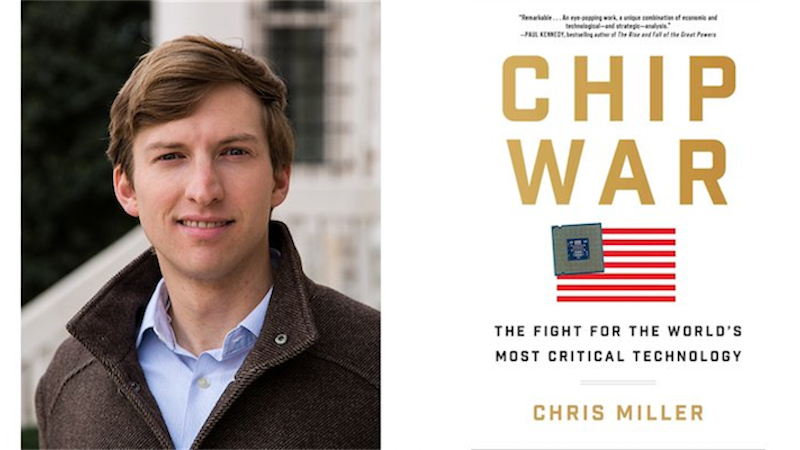
@HPCpodcast: Chip War Author Chris Miller on the Escalating U.S.-China Technology Trade Conflict
With Chris Miller, Associate Professor of International History at The Fletcher School of Law and Diplomacy
The backdrop of this year’s SC22 conference is the rising trade conflict between the U.S. and China and the Administration’s increasing restrictions on exports of technology driving the development of advanced chips — the chips that power supercomputers. Our special guest on the @HPCpodcast is author Chris Miller, whose new book, Chip War, is a history and analysis of the growing role of the semiconductor industry in global economic and military competitiveness.
Miller is associate professor of international history at Tufts University’s Fletcher School of Law and Diplomacy, as well as Jeane Kirkpatrick Visiting Fellow at the American Enterprise Institute,and Eurasia Director at the Foreign Policy Research Institute.
Chip War has been shortlisted for the Financial Times Business Book of the Year award and Miller is a frequent public speaker – he recently appeared on C-SPAN to discuss his new book.
We had a long list of topics and questions:
- How did we get here? Was it poor risk management, sheer complexity or too many black swans?
- The impact of political dysfunction, social polarization and policy inconsistency on waging such wars.
- Might Western values and standards of privacy and individual freedom be a competitive disadvantage vis a vis China in the age of AI where raw data superiority can lead to economic superiority?
- Has technology shifted from beging used first in government/military and finally by consumers to the reverse: the consumer is the first adopter, then companies, then government?
- How much time is there to regain competitiveness? Why did the U.S. not learn its lessons from Japan’s experience in memory chip fabrication technology? Is there something missing in the public-private partnership model in the US?
- Is supercomputing its own race or is it subordinate to the bigger tech issue?
- Was there a lost opportunity to formulate a different, more harmonious, world order?
- What is the impact of current trade barriers? What options do other countries have?
- Several of the book’s leading cast members seem to have had challenging personal journeys before they became prominent. Is that a coincidence or a requirement to build a world-leading semiconductor company?! Can it be that it is an effective way to instill the kind of discipline and culture that is required to succeed in the chip business?
And we got through most of them. Please join us for this fascinating discussion.
You can find our podcasts at insideHPC’s @HPCpodcast page, on Twitter and at the OrionX.net blog. Here’s the RSS feed.
We welcome your ideas for special topics and guest commentators. Feel free to contact Doug Black or Shahin Khan with your suggestions.
This podcast episode was republished from insideHPC.
